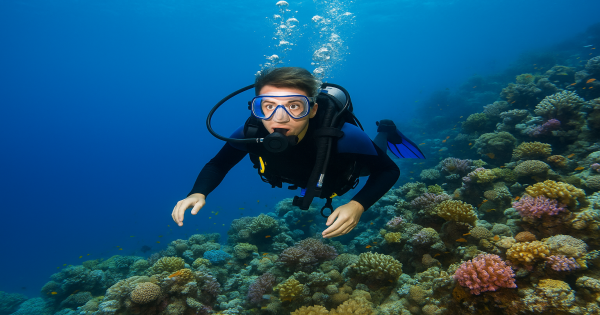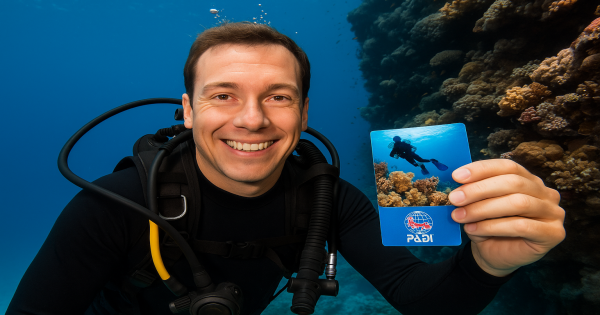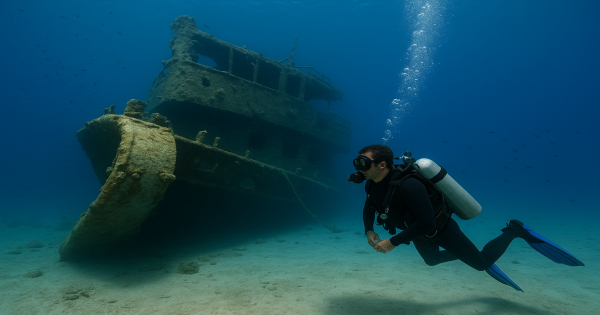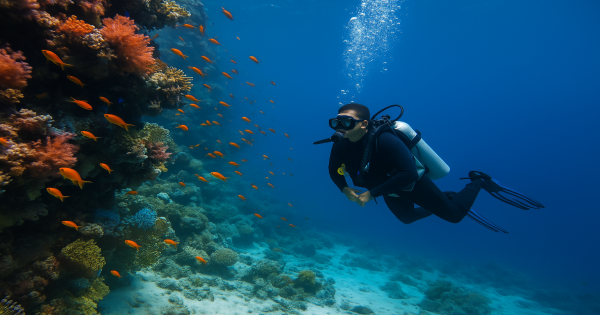Blog Details
Mistakes to Avoid When Diving
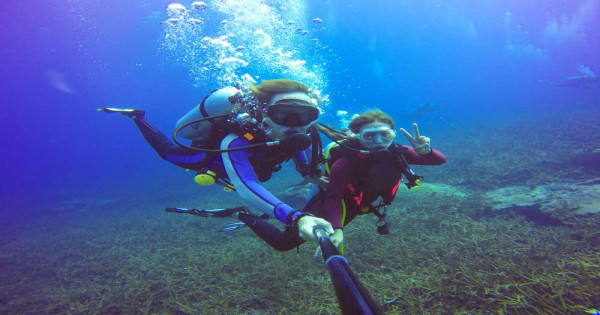
If you're diving for the first time, it’s easy to make some common mistakes. To prioritize your safety and enjoy your overall experience, there are a few key errors you should avoid ensuring you stay safe and enjoy your time underwater to the extreme. In this article, we’ll share important insights regardless of whether it's your first dive or you’ve done many before. It's essential to avoid certain mistakes to keep your diving experience safe and enjoyable.
Mistakes to Avoid When Diving
Even experienced divers can make mistakes that compromise their safety and overall diving experience. One of the most common errors is skipping proper equipment checks before a dive. Failing to inspect your regulator, BCD, or dive computer can lead to unexpected issues underwater. Another frequent mistake is ascending too quickly, which can cause decompression sickness. Always follow a slow, controlled ascent and take safety stops when necessary.
Poor buoyancy control is another issue that can lead to collisions with coral reefs or unnecessary air consumption. Practicing buoyancy techniques in a controlled environment can help improve stability underwater. Additionally, ignoring dive plans or failing to communicate with your buddy can put both divers at risk. Always stick to the planned depth, dive time, and safety procedures.
Failing to Plan Adequately
One of the biggest mistakes divers make is not planning their dive properly. Failing to consider weather conditions, site selection, depth, and underwater currents can lead to unexpected challenges. Without a solid plan, you may find yourself in unsafe waters, struggling against strong currents, or unable to navigate back to your exit point.
How to Avoid This Mistake:
-
Research the dive site, tides, and weather before your trip.
-
Always dive with a clear plan and discuss it with your buddy.
-
Have an emergency procedure in place in case of unexpected situations.
Poor Planning
Failing to plan adequately can lead to unexpected incidents underwater, such as changes in weather, site selection, or environmental conditions like depth and currents. All of these factors directly impact the plan you need to create for a safe and unparalleled diving experience that protects you from accidents.
Neglecting Your Diving Equipment
It's essential to check your diving equipment before you enter the water . Make sure to inspect your air tank and regulator to confirm they're working properly. Skipping this step can lead to issues that may cut your dive short or even spoil the whole experience because you didn’t take the time to check your equipment.
Dive Safely Today! – Learn the key mistakes to avoid when diving and ensure a secure underwater adventure +201092856966
Neglecting Your Diving Equipment
Your diving gear is your lifeline underwater, and failing to inspect it before a dive can lead to equipment failure. A malfunctioning regulator, a leaking air tank, or a broken mask strap can quickly turn a fun dive into a dangerous situation.
How to Avoid This Mistake:
-
Check your air tank, regulator, BCD, and dive computer before entering the water.
-
Inspect your mask, fins, and wetsuit for any damage.
-
Always have a backup plan for minor equipment failures, such as carrying extra O-rings or mask straps.
Improve Your Diving Skills! – Master buoyancy control, equipment checks, and safety measures for a better dive experience +201092856966
Monitoring Depth and Time
Diving instructors always emphasize the importance of not going too deep for extended periods to avoid nitrogen toxicity. It's crucial to follow the guidelines and keep an eye on both your depth and the time spent underwater. This will help you prevent health issues that could affect you later. To protect your well-being, be mindful of how long you're diving at various depths.
Descending or Ascending Too Quickly
Many divers make the mistake of descending too fast at the start of a dive, which can cause ear barotrauma due to pressure changes. Similarly, ascending too quickly increases the risk of decompression sickness.
How to Avoid This Mistake:
-
Equalize your ears early and often while descending.
-
Ascend slowly and follow safety stop recommendations.
-
Use your dive computer or depth gauge to monitor your ascent rate.
Diving Under the Effect of drugs
If you've taken any drugs, you should avoid diving altogether. Being under the influence can affect your focus and balance, which can be dangerous underwater. Always avoid alcohol or any substances before your dive to ensure your safety.
Stay Safe, Dive Smart! – Avoid common diving errors and make every dive safe and enjoyable with expert tips +201092856966
Ignoring Hand Signals
Diving instructors typically use hand signals for communication underwater, so it's essential to learn some of these signals before your dive. Pay close attention to them to avoid potential issues .
Avoiding all these mistakes and being more careful and educated can help you stay focused and prevent mistakes while diving. Since diving significantly impacts both physical and mental health, it can be a safe and healthy experience if you avoid common errors. We wish you a safe and enjoyable diving adventure!
Ignoring Signs of Fatigue or Dehydration
Diving requires energy, and exhaustion or dehydration can affect your breathing, concentration, and muscle control. Ignoring these signs can make a dive more dangerous.
How to Avoid This Mistake
-
Get enough rest before diving.
-
Drink plenty of water before and after your dive to stay hydrated.
-
If you feel tired or unwell, postpone the dive for another time.
Avoiding these common mistakes is crucial for a safe, enjoyable, and stress-free diving experience. By being well-prepared, staying aware of your surroundings, and following diving best practices, you can overcome diving challenges and difficulties while ensuring your safety underwater. Whether you're a beginner or a seasoned diver, continuous learning and careful planning will help you make the most of every dive.
Not Practicing Buoyancy Control
Buoyancy control is one of the most essential skills in diving, yet many divers struggle with it. Poor buoyancy can lead to accidental contact with coral reefs, excessive air consumption, and difficulty maintaining depth stability. If a diver is too heavy, they may sink too quickly, making it hard to move efficiently. On the other hand, being too buoyant can cause unintended ascents, increasing the risk of decompression sickness.
To avoid these issues, divers should practice buoyancy control in a controlled environment, such as a shallow dive site or swimming pool. Adjusting weights properly, using slow and controlled breathing, and learning to fine-tune buoyancy with small BCD adjustments are key techniques. Mastering buoyancy not only improves safety but also enhances overall diving comfort, allowing for longer and more enjoyable dives.
Diving Medical Conditions
Diving is a physically demanding activity, and certain medical conditions can pose serious risks underwater. Conditions such as asthhma, heart disease, sinus infections, and lung disorders can affect a diver’s ability to breathe and handle pressure changes. Additionally, ear barotrauma and decompression sickness are common health concerns that can arise if divers do not properly manage their ascent and descent.
One of the biggest mistakes to avoid when diving is ignoring pre-existing medical conditions or diving while feeling unwell. Even mild symptoms, like congestion or fatigue, can lead to complications such as ear pain, dizziness, or difficulty equalizing pressure. To stay safe, divers should undergo a medical evaluation if they have any health concerns and always follow professional advice before engaging in a dive. Taking precautions and being aware of potential risks can help prevent serious medical emergencies underwater.
